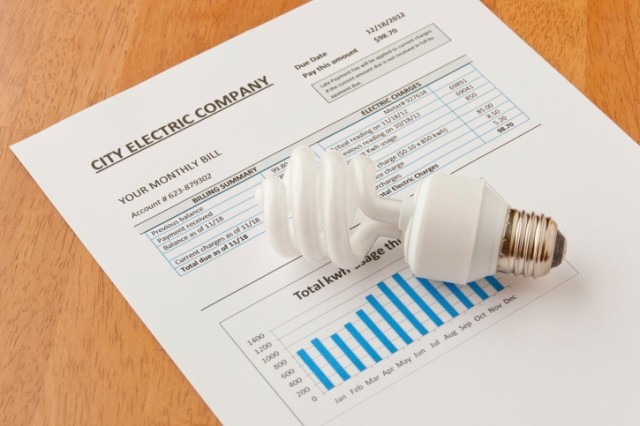The journey to your new apartment is almost over! But wait. Before you put pen to paper – or mouse to screen if you’re signing your lease agreement online – let’s put on the brakes. There’s one more leg to this journey, and that’s reading your lease agreement. Don’t jump ahead and “sign here” before you read your lease and understand it fully.
Every lease is different, and a lot depends on the laws in your state and your landlord, but below are some common clauses you might find in your lease agreement. Let’s take the scenic route and learn about lease clauses! It’ll be fun! (Okay, maybe not fun, but hopefully informative.)
The Essential Details
The “nuts and bolts” of your lease agreement will likely be presented right up front. These details may include:
The Property’s Address
You’ll find the complete address of the property you are renting, which includes the building and the unit number. The lease may also provide details on your parking spot (if you have an assigned one) and your storage space if one is included.
Your Name and the Names of Those Renting with You
You’ll probably see the names of all adults renting the unit, including any roommates or your significant other. The lease may specify that only those listed (and minor children) are allowed to live at the property.
Contact Information
The contact information for everyone involved: you, the landlord or property manager, and your roommates if you have any.
The Lease Duration
This specifies the start date and end date of the lease. Take note of the start date (this is your move-in date), the length of the lease (if you agreed to a one-year lease, make sure you’re signing a one-year lease), and the expiration date (your move-out date, unless you are given the option to renew).
An Occupancy Clause
Your lease may include something called an occupancy clause. This clause states that only those listed on the lease (the tenants) and their minor children are allowed to live in the rental. So, you can’t invite your friend who just moved town to come and live with you. You’d have to get permission from your landlord, who would likely add your friend to the lease. This clause may also state how long guests can stay in your apartment (for example, guests can remain for two weeks before they must be added to the lease). This clause could also prohibit subletting your apartment, which means you can’t rent it out to someone else.
The Rent and Fees
You should find the amount of the rent and the due date specified in your lease agreement. This section may also include information about late fees (the amount of the late fee and on which day it will be assessed) and any charges you can expect if your rent payment is returned due to non-sufficient funds (NSF).
You might also find other fees addressed in your lease agreement, including the security deposit and any move-in fees.
The lease agreement may also specify the amount of any rent increase (typically the amount of the increase at the end of the lease term should you choose to renew your lease).
Beyond the nuts and bolts, there are other items you might find covered in your lease agreement. These topics include:
Early Termination
An early termination clause spells out what will happen if you break your lease before the lease term ends. A lease is an agreement to pay the full amount of the lease – even though it is broken out into monthly payments. So when you break the lease, you could be held responsible for the rest of the lease term. An early termination clause specifies what will happen if you choose to terminate the lease early. For example, you might have to give notice (specified in the clause) and pay a certain amount.
Maintenance and Utilities
You may find a section in your lease that deals with utilities, especially if some utilities are included with the rent. Some communities might offer an allowance for basic services up to a certain amount, and if you go over that amount, you might be expected to cover the remaining balance.
This section may also address maintenance, especially what is covered and how to report issues. There may be some things you are responsible for, and if so, these things might be specified in your lease agreement. For example, your lease might specify that you’ll have to pay for anything you break or neglect.
You might also see restrictions on what you can alter or repair in your apartment. For example, you might not be allowed to paint, install a dishwasher, or swap out your locks.
Pets
Your lease agreement will specify if you are allowed to have pets or not. If you are allowed to have pets, you may find restrictions on the number of pets, breeds, and weight. This section will also outline the fees involved with having a pet, which can range from a pet deposit to monthly pet rent.
Tenant and Landlord Responsibilities
As the tenant, you may find certain responsibilities outlined in your lease. This may include things like noise, disruptive behavior, and illegal activity. Your landlord may also have responsibilities specified in the lease agreement. You may see a clause about your landlord’s right to enter the rental property. This clause will specify the amount of notice they will give you before entering and the reasons they may enter (to make repairs or show the unit to potential renters, for example). The laws around the right of entry vary from state to state, so look up your state laws if you have questions about this section.
Insurance
If it is allowed in your state, your landlord might require renters insurance. Usually, a landlord’s insurance policy only covers the building itself and not the contents – meaning your belongings. So it’s a good idea to have renters insurance, even if it isn’t specified in your lease agreement.
Your lease agreement may have all of the above clauses or none of them. Every lease is different, but hopefully you now have a better understanding of some of the things you might find as you review your lease. If you have any questions about the lease agreement, contact the landlord or property manager and ask! You can also look up your state and local laws if you want more information. Once you’ve read, understood, and signed your lease agreement, you can venture off to that unknown land … your new apartment. Bon voyage!






